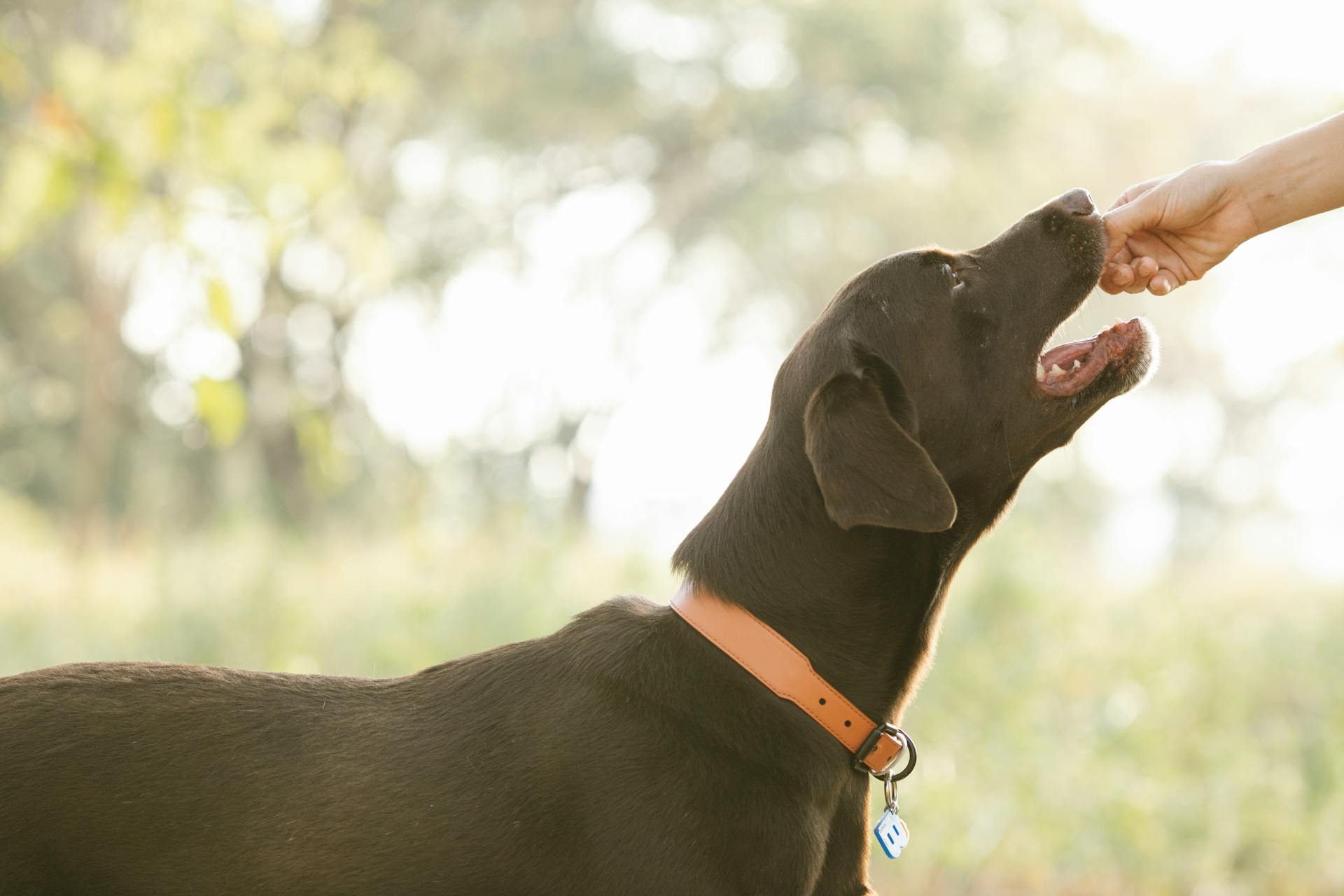
Raising two Labradors can be a thrilling experience, but it's essential to be aware of the benefits and challenges that come with it.
Having two Labradors can be a great way to keep each other company, as they are social animals that thrive on interaction. With two Labradors, you'll get double the affection and playtime.
Labradors are known for their intelligence and trainability, which makes them relatively easy to manage. They are also known for their high energy levels, which can be a challenge for some owners.
A Labrador's exercise needs are significant, and having two will double the workload. You can expect to spend at least an hour a day exercising and playing with your two Labradors.
Benefits of a Second Dog
Labradors are very sociable dogs, making them brilliant family pets. They thrive on interaction and attention from their human family.
Getting a second dog can be a great idea if you have a Labrador. Labradors are very sociable dogs, and having a companion can help prevent boredom and destructive behavior.
Having two Labradors can also be beneficial for exercise. Labradors need regular exercise to stay happy and healthy, and having a playmate can encourage them to run around and play more.
Labradors are brilliant family pets, and having two can strengthen family bonds. They are very sociable dogs, and their presence can bring people together.
Many Labrador owners consider getting a second dog, and it's a decision that can be well worth considering.
Obedience Issues
Training two Labradors can be a challenge, especially when it comes to obedience issues. An untrained older dog can be a real problem, making it harder to train a new puppy.
You'll need to train your older dog first, it's never too late, and keeping a journal of your progress will be invaluable when the new puppy arrives. This will help you track your older dog's training and make adjustments as needed.
Training a puppy with an older dog around can be difficult, as the older dog may interfere or even get into mischief. Small puppies can't go for long hikes, so you'll need to exercise your older dog separately for the first few months.
In fact, it's best to train both dogs separately, especially when it comes to obedience. Puppies don't generally learn by copying their older siblings, so you'll need to put in the extra effort to train them separately.
The Impact of a Second Dog
Getting a second dog can be a big decision, and it's essential to consider the impact it will have on you and your family. Labradors are very sociable dogs, and they are brilliant family pets, so many owners will consider getting a second dog.
You may have forgotten the sleepless nights and the housetraining, but it will all come flooding back when the new puppy arrives. Dealing with a new puppy can be more difficult with another dog around, as they will step in puddles when you're trying to clean up and generally get in the way.
If you have children, getting a second dog will be a different experience, not necessarily worse, but certainly different. Children can lose interest in the dog once the initial novelty has worn off, and parents are often pre-occupied with childcare.
A dog living with a childless couple often gets a lot more attention than a dog living with a family, which is only natural.
Sources
- https://www.newsweek.com/two-labradors-love-everyone-surprising-nemesis-1861409
- https://www.johnderian.com/products/mfhg_mr_and_mrs_bulldog-jpg
- https://www.thelabradorsite.com/do-labradors-need-friends-and-should-i-get-a-second-dog/
- https://www.newsweek.com/labradors-one-braincell-stops-working-tiktok-1873339
- https://www.wetcanvas.com/forums/topic/my-two-rascally-labradors/
Featured Images: pexels.com

